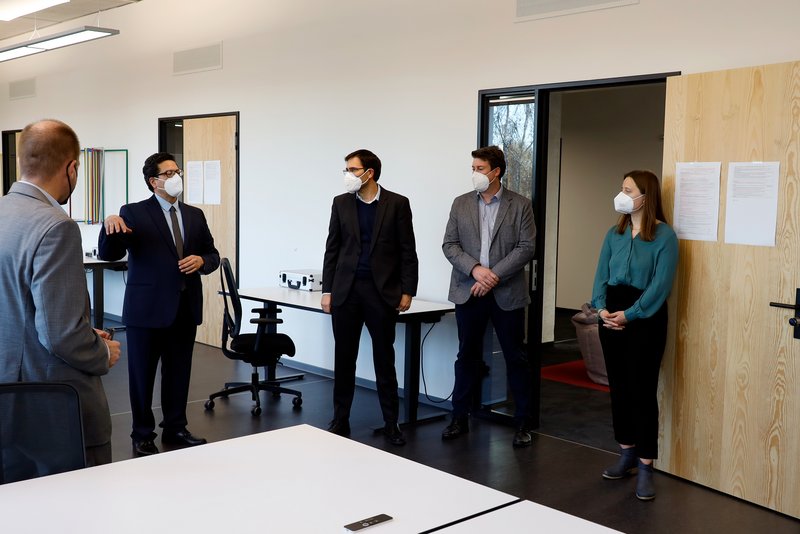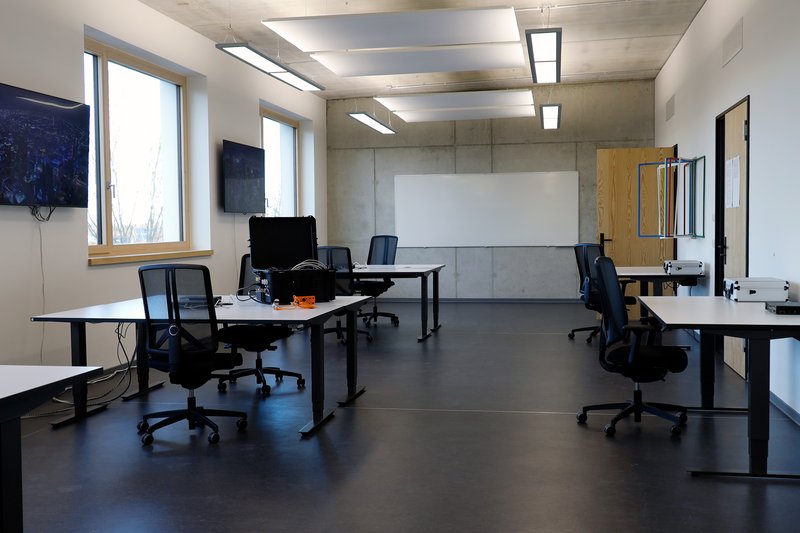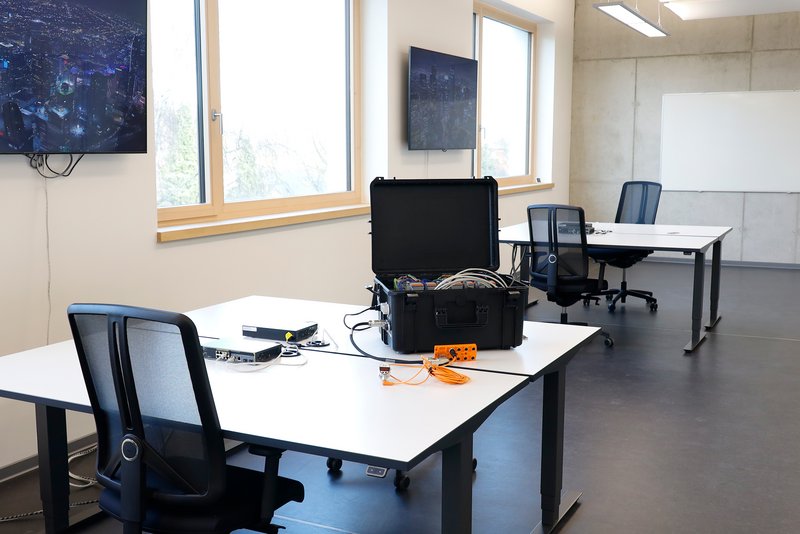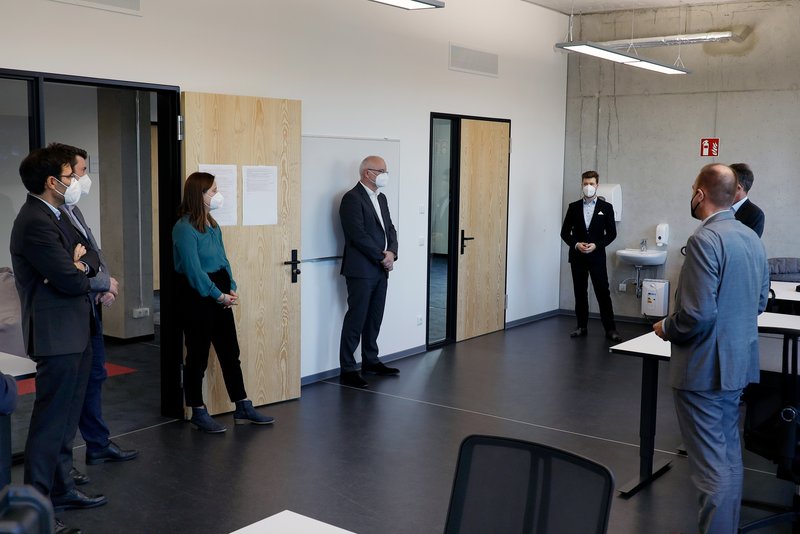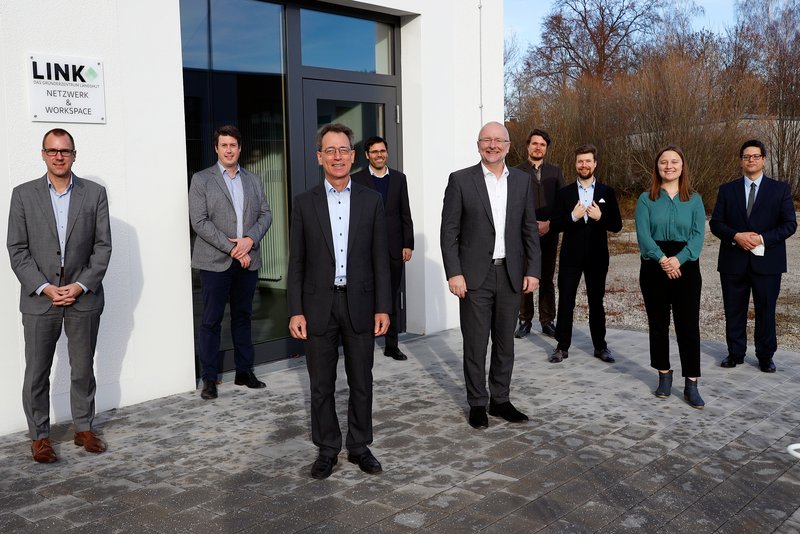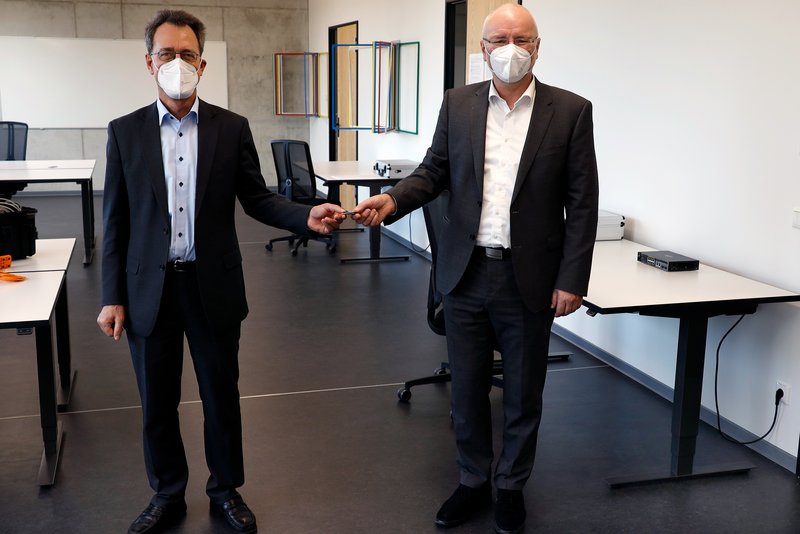“The Innovation Centre is designed for interdisciplinary cooperation. We want to bring students into contact with start-ups and companies, but also to network internally with other faculties, because successful start-up and project teams are rarely staffed from just one discipline,” explains Laboratory Director Prof. Dr. Abdelmajid Khelil. He initiated the project and together with his team has already successfully established the “Internet of Things” (IoT) innovation laboratory at the Landshut University of Applied Sciences. Student project work that takes place in the laboratory is supervised and supported by coach Tobias Christian Piller, Scientific Research Assistant with Prof. Khelil at the Faculty of Computer Science.
University AI lab at the LINK
The new AI Innovation Laboratory is located in the LINK start-up centre at Kiem-Pauli-Straße 8 in Landshut. It offers modern furnishings for groupwork, network technology, state-of-the-art screens for presentations and a direct link to the university’s network. Almost even more important than the equipment is the immediate proximity to the start-ups on site.
The idea of setting up a laboratory in the Landshut start-up centre came from the Landshut local authority. “Promoting start-up ideas and creating ideal conditions for them in the region is something very close to our hearts. We are creating the suitable infrastructure for this”, says Lord Mayor Alexander Putz, who opened the laboratory together with the Vice President for Digitalisation, Founding and Further Training at the Landshut University of Applied Sciences, Prof. Dr. Marcus Jautze. “We accepted the town’s suggestion straight away, to support scientific spin-off companies”, explains Jautze. “In the framework of close cooperation with the town authority, our university’s own start-up centre and our university development process, in which start-ups and digitalisation are cornerstone subjects, this produces a win-win situation for everyone involved.”
Teaching always up to date
The scientific assistants at the university are required to contribute their knowledge and research results to the AI Innovation Laboratory. This way the teaching stays right up to date. Prof. Jautze also particularly emphasises the interaction between humans and machines: “Ultimately, regardless of digitalisation, it is the people behind the technology that make up the networking and success of such pioneering projects.”
Spin-off start-ups in three phases
This set-up is intended to create potentials for academic spin-offs from traditional training, and to provide them with active support. The practical training in the innovation laboratories for AI and IoT, in cooperation with the project partners of the university and of the LINK start-up centre forms the springboard for this. In their training at the university, the students essentially go through three phases. In the first phase, the aim is to build up knowledge in the theory. In phase two, this theory has to be applied in the laboratory, supported by the laboratory personnel and ideally sponsored by project partners. In phase three, after their graduations, students can fine-tune their ideas independently, always in active cooperation with the university’s start-up centre, LINK and project partners. This is an excellent way for companies to support the experts of tomorrow, while the students gain valuable insights into the digital working world.
Photos: Landshut University of Applied Sciences
(free to use where source is indicated)

